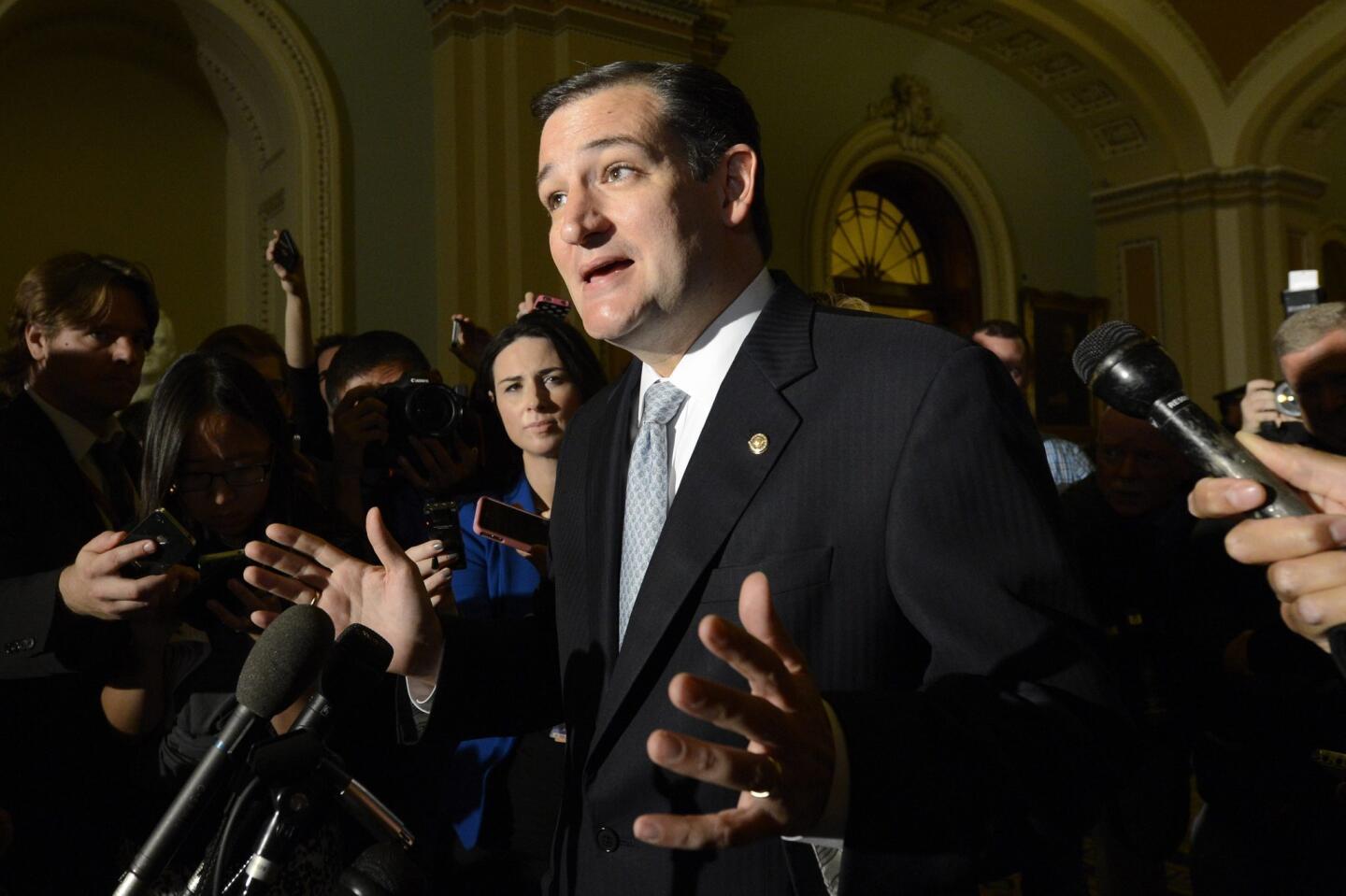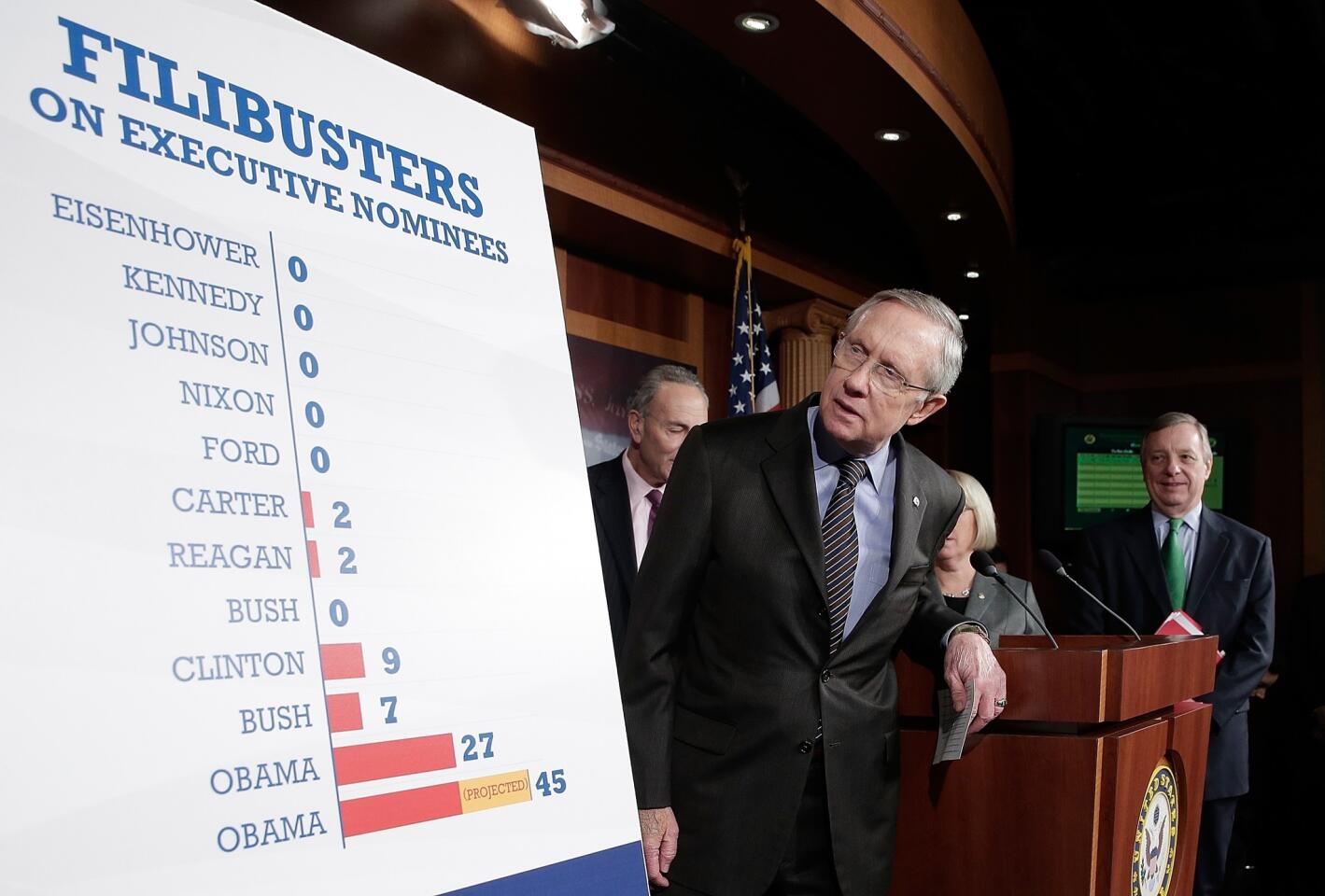Washington’s 5 biggest ‘fails’ of 2013

When it’s the signature achievement of your administration, you might want to make sure it works. President Obama learned that lesson the hard way this year when the Patient Protection and Affordable Healthcare Act got off to what even supporters called a rough start. Opponents were, well, more pointed in their criticism, starting with “we told you so” and moving on to “catastrophe,” “train wreck” and worse.
The biggest problem was with the HealthCare.gov website, which was supposed to let people browse for coverage and pick an insurance plan. Unfortunately, HealthCare.gov was to websites what the Titanic was to ocean liners.
In the “fail” follies, the botched Obamacare rollout was No. 1 in a landslide.
Above, part of HealthCare.gov website. (Jon Elswick / Associated Press)
Democrats and Republicans in Washington don’t agree on, well, practically anything these days. Which means not much gets done. But in looking at what did, and did not, happen in D.C. this year, five obvious “winners” emerged as the greatest failures of 2013. And hey, how about that, it’s a bipartisan list! --Paul Whitefield
Follow Paul Whitefield on Twitter @PaulWhitefield1 and Google +

It isn’t often that the launch of one government program can harm both major parties. The glitch-filled rollout of Obamacare may have put the president and Democrats on the defensive, but Republicans were able to snatch defeat from the jaws of victory with their inane quest to defund the healthcare law. The House voted more than three-dozen times on legislation to do it in; the Senate, of course, ignored its rabble-rousing colleague.
Well, make that mostly ignored it. Texas’ Ted “That Crazy Canadian” Cruz inexplicably decided to lead an ill-fated attack in the Senate (think Gettysburg and Pickett or Tennyson’s “The Charge of the Light Brigade”). His “filibuster” (it was more just a talkathon) failed utterly, earning him not only the enmity of Democrats but of fellow Republicans. As Tennessee Republican Sen. Bob Corker acidly tweeted about Cruz’s chance of getting the votes to defund the healthcare law: “I didn’t go to Harvard or Princeton, but I can count.”
What Cruz did help accomplish, of course, was the 16-day government shutdown that furloughed workers, shuttered national parks -- and left the rest of the world scratching its head at this example of “American exceptionalism.”
Above, Cruz after a vote on a deal to end the government shutdown. (Michael Reynolds / EPA)

You can’t say they weren’t warned. Since President Obama’s election in 2008, Republicans in the Senate have seemingly taken special pleasure in blocking his nominees, both judicial and to administrative posts. After the GOP filibustered three well-qualified nominees to the District of Columbia appeals court this year, Sen. Majority Leader Harry Reid (D-Nev.) had had enough. Deploying the so-called nuclear option, Democrats changed the rules so that Senate confirmations of presidential appointments -- except for Supreme Court justices -- will proceed by a simple majority vote.
The beaten Republicans were left to cry over spilled milk. “You may regret it a lot sooner than you think,” Senate Minority Leader Mitch McConnell (R-Ky.) whined after the vote. Of course, that depends on Republicans retaking the Senate someday.
Above, Reid, center, with Sens. Charles Schumer (D-N.Y.), left, and Dick Durbin (D-Ill.) after the Senate voted to change the filibuster rules. (Win McNamee / Getty Images)







